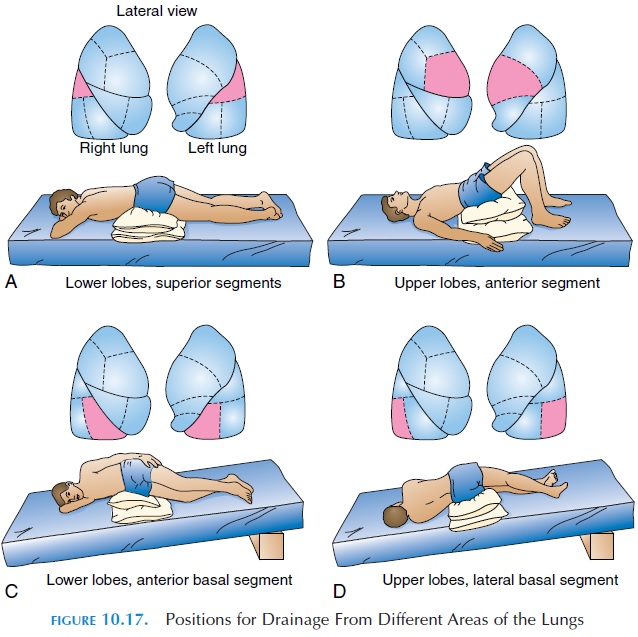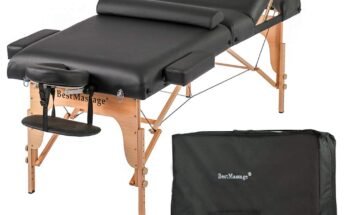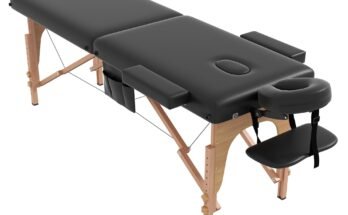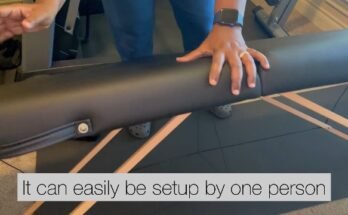Tapotement massage for lungs helps clear mucus and improve breathing. It involves rhythmic tapping on the chest and back.
Tapotement massage, a technique used in respiratory therapy, enhances lung function. This method consists of light, rhythmic tapping on the chest and back areas. Practitioners often use cupped hands to create a gentle percussive effect. This action helps loosen mucus and phlegm, making it easier to expel from the lungs.
Regular sessions can significantly benefit individuals with respiratory conditions like asthma, bronchitis, or cystic fibrosis. The technique not only aids in mucus clearance but also promotes better oxygen circulation. Easy to perform, tapotement massage can be a valuable addition to traditional respiratory treatments, offering a non-invasive way to improve lung health.
Introduction To Tapotement Massage
Tapotement massage is a rhythmic tapping technique. It helps to clear the lungs. This massage type is beneficial for respiratory health. Tapotement can improve breathing and lung function. Learn its history and basic principles below.
History And Origins
Tapotement massage originates from ancient practices. It has roots in traditional Chinese medicine. This technique was used to improve circulation and energy flow. In the 19th century, Swedish massage incorporated tapotement. This brought the technique to the Western world. Since then, it has been used for respiratory health benefits.
Basic Principles
Tapotement involves rhythmic tapping on the body. The taps are light and fast. The goal is to loosen mucus in the lungs. This helps to clear the airways. Tapotement can be done with hands or tools.
| Principle | Description |
|---|---|
| Rhythmic Tapping | Quick, light taps on the body. |
| Loosening Mucus | Helps to clear airways. |
| Hand Techniques | Performed with hands or tools. |
Follow these steps for effective tapotement:
- Sit or lie down comfortably.
- Use cupped hands or a tapping tool.
- Tap gently on the chest and back.
- Continue for 5-10 minutes.
Benefits include:
- Improved lung function
- Better breathing
- Clearer airways
Tapotement massage can support respiratory health. Include it in your wellness routine.
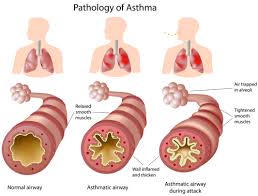
Credit: www.massagetherapyreference.com
Benefits For Respiratory Health
Tapotement massage is a rhythmic tapping technique. It offers many benefits for respiratory health. This massage improves lung function and enhances oxygen flow. Let’s explore these benefits in detail.
Improved Lung Function
Tapotement massage helps clear mucus from the lungs. This clearing makes breathing easier. It can be very helpful for people with asthma or bronchitis.
The tapping motion also strengthens respiratory muscles. Stronger muscles lead to better lung function. This helps you breathe deeply and efficiently.
Studies show that tapotement can reduce lung infection risks. This is important for overall respiratory health.
Enhanced Oxygen Flow
Tapotement massage improves blood circulation. Better circulation means more oxygen reaches your lungs.
This technique also helps expand lung capacity. Bigger lung capacity allows more oxygen intake. This boosts your energy levels and helps you feel more active.
A regular tapotement massage can enhance your respiratory system. It ensures your body gets enough oxygen for all activities.
| Benefits | Details |
|---|---|
| Clears Mucus | Makes breathing easier |
| Strengthens Muscles | Improves lung function |
| Reduces Infection | Enhances respiratory health |
| Improves Circulation | Enhances oxygen flow |
| Expands Lung Capacity | Boosts energy levels |
How Tapotement Works
Tapotement massage is a rhythmic tapping technique. It helps clear the lungs. This technique involves quick, percussive movements. Therapists use their hands, fingers, or a cupped hand position.
Techniques Used
Different methods are used in tapotement:
- Hacking: The therapist uses the edge of their hands.
- Pounding: The therapist uses a loose fist.
- Clapping: The therapist uses a cupped hand position.
- Tapping: The therapist uses fingertips.
Each technique serves a specific purpose. Hacking and pounding are more intense. Clapping and tapping are gentler. The therapist chooses the best method for the patient.
Scientific Basis
Tapotement helps loosen mucus in the lungs. The rhythmic tapping creates vibrations. These vibrations travel through the chest wall. They help break up thick mucus, making it easier to cough up.
Studies show that tapotement increases lung function. It enhances oxygen intake. It reduces respiratory infections. Tapotement massage is especially useful for people with cystic fibrosis or bronchitis.
A study in the Journal of Respiratory Care found positive results. Patients had better breathing after tapotement. Their lung capacity improved. Their overall health got better.
| Technique | Intensity Level | Use Case |
|---|---|---|
| Hacking | High | Thick mucus |
| Pounding | High | Stubborn mucus |
| Clapping | Medium | General lung clearance |
| Tapping | Low | Gentle mucus loosening |
Tapotement is a powerful tool for lung health. It combines simple techniques with scientific effectiveness. Regular sessions can lead to significant improvements.
Techniques And Tools
Understanding the techniques and tools used in tapotement massage for lungs is essential. This type of massage helps with respiratory health. It uses specific hand movements and tools to improve lung function.
Hand Techniques
Hand techniques are crucial in tapotement massage. These techniques involve rhythmic tapping, which helps to loosen mucus in the lungs. Here are some common hand techniques:
- Clapping: Use a cupped hand to tap the chest or back. This creates a hollow sound and helps to loosen mucus.
- Hacking: Use the edge of the hand to deliver quick, light taps. This is done on the back and chest.
- Beating: Use a closed fist to gently tap the back. This technique is stronger and helps in deep tissue stimulation.
- Pounding: Use the sides of both hands simultaneously. This technique covers a larger area and is very effective.
Massage Tools
Using tools can enhance the effectiveness of a tapotement massage. These tools are designed to mimic hand techniques but with more precision and less effort. Here are some commonly used massage tools:
| Tool | Description |
|---|---|
| Percussion Massager | A handheld device that delivers rapid taps. Ideal for deeper stimulation. |
| Massage Balls | Small, hard balls used to target specific areas. Great for localized treatment. |
| Massage Sticks | Long, cylindrical tools used for rolling and tapping. Useful for larger body areas. |
| Massage Pads | Soft, padded tools that provide a gentler tap. Suitable for sensitive areas. |
Both hand techniques and tools play a crucial role in tapotement massage. They help improve lung health and enhance respiratory function.
Step-by-step Guide
Tapotement massage is a rhythmic technique to improve lung health. This guide will help you perform it properly. Follow the steps for a successful tapotement massage.
Preparation
Before starting, gather these materials:
- Comfortable bed or chair
- Soft pillows
- Warm towel
- Timer
Ensure the room is quiet and well-lit. The person receiving the massage should wear loose clothing. This ensures ease of movement and comfort.
Execution
Start by placing the warm towel on the back. This relaxes muscles and prepares the skin.
- Position the person comfortably on their stomach.
- Begin with light tapping on the upper back. Use the sides of your hands.
- Gradually increase the intensity. Maintain a rhythmic pattern.
- Focus on different lung areas. This ensures thorough treatment.
- Continue for 5-10 minutes. Use the timer to track.
- Finish with gentle strokes to soothe the area.
Here’s a quick reference table for tapotement areas:
| Area | Duration (minutes) |
|---|---|
| Upper Back | 2-3 |
| Middle Back | 2-3 |
| Lower Back | 1-2 |
Ensure the person feels comfortable throughout the session. Adjust the intensity as needed.
This method enhances lung function and promotes relaxation. Always consult a healthcare professional before starting any new therapy.
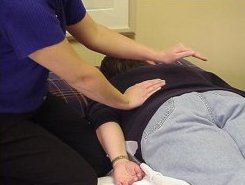
Credit: www.myshepherdconnection.org
Precautions And Safety
Tapotement massage can help the lungs. But it’s important to be careful. Understanding the precautions and safety measures ensures you get the most benefits. This section will guide you on who should avoid this massage and possible side effects.
Who Should Avoid
- Pregnant Women: This massage might not be safe during pregnancy.
- People with Rib Injuries: If you have broken ribs, avoid this massage.
- Heart Conditions: Those with heart problems should not try tapotement massage.
- Osteoporosis Patients: Fragile bones can get hurt easily.
Possible Side Effects
While tapotement massage is generally safe, some may experience side effects. The key is to be aware of them and act quickly if they occur.
| Side Effect | Description |
|---|---|
| Bruising | Your skin might get bruised from the tapping. |
| Soreness | Muscles can feel sore after the massage. |
| Fatigue | You might feel very tired after the session. |
| Discomfort | Some may feel discomfort during the tapping. |
Always consult a doctor before trying new treatments. Being cautious helps you stay safe and healthy.
Combining With Other Therapies
Combining Tapotement Massage for Lungs with other therapies can enhance its benefits. This holistic approach can improve lung health and overall well-being. Below are some effective therapies to combine with tapotement massage.
Aromatherapy
Aromatherapy uses essential oils to promote health. Combine this with tapotement massage for better results. Certain essential oils like eucalyptus and peppermint can aid in respiratory health.
- Place a diffuser in the room during the massage.
- Use oils known for their respiratory benefits.
- Inhale the aroma deeply to open airways.
Essential oils can make the tapotement massage more relaxing. They can also help clear the lungs.
Breathing Exercises
Breathing exercises are another great addition to tapotement massage. They help improve lung capacity and efficiency.
- Start with deep breathing techniques.
- Practice diaphragmatic breathing before the massage.
- Incorporate pursed-lip breathing during the session.
Combining breathing exercises with tapotement massage can enhance oxygen intake. It helps in better lung function and overall respiratory health.
Success Stories
Many people have found relief through Tapotement Massage for lungs. Their experiences show the benefits of this technique. Let’s explore some success stories.
Patient Testimonials
Patients often share their positive experiences with Tapotement Massage. These testimonials highlight its effectiveness.
- John, 45: “I feel better after each session. My breathing is easier.”
- Mary, 60: “I had frequent lung infections. Now, I rarely get sick.”
- Alex, 30: “My asthma is more controlled. I can do more activities.”
Case Studies
Several case studies show the impact of Tapotement Massage on lung health. Here are some examples:
| Patient | Age | Condition | Outcome |
|---|---|---|---|
| Emily | 25 | Chronic Bronchitis | Fewer flare-ups, better breathing |
| Robert | 50 | Asthma | Less medication, more active |
| Susan | 65 | Pulmonary Fibrosis | Increased lung capacity, more energy |
These cases highlight the benefits of Tapotement Massage for different lung conditions. Each patient experienced improved lung health.

Credit: www.sarricapt.com
Frequently Asked Questions
Where To Massage To Open Lungs?
Massage the chest area, focusing on the sternum and upper ribcage. Gently press and rub in circular motions.
What Points To Massage For Lungs?
Massage points for lung health include the chest, upper back, and acupressure points like LU1 and LU5 on the forearm.
How Do You Massage Your Lungs To Loosen Mucus?
To massage your lungs, use chest percussion and vibration techniques. Gently tap your chest and back to loosen mucus.
What Position Drains Mucus From The Lungs?
The best position to drain mucus from the lungs is lying on your side, with your head lower than your chest.
Conclusion
Tapotement massage for lungs offers numerous benefits. It enhances respiratory function and clears mucus. Incorporate this technique into your routine. Experience improved lung health and overall well-being. Consult a professional for best results. Embrace tapotement massage today for a healthier, more vibrant life.
